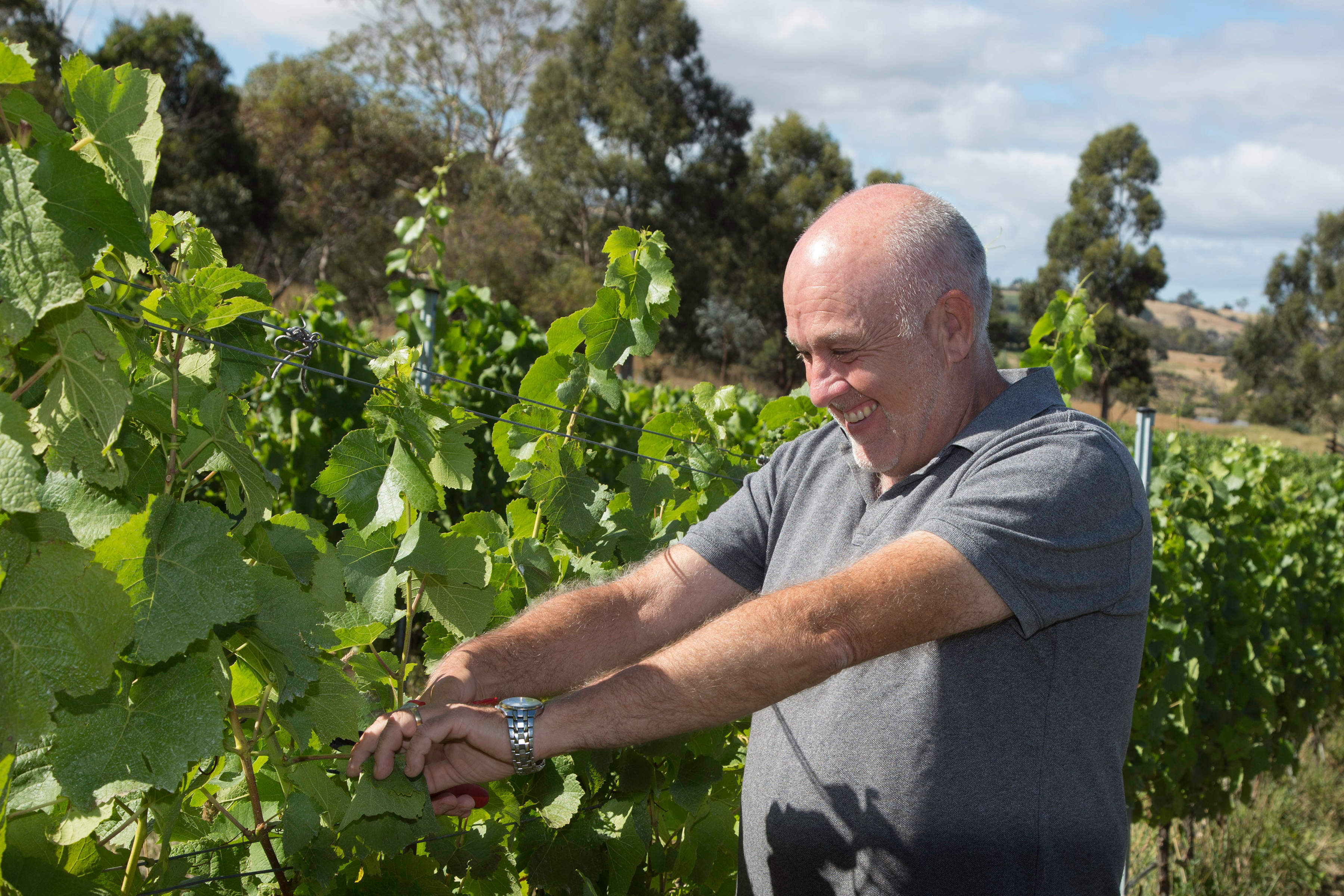Wobbly Boot Vineyard, on White Kangaroo Road near Richmond, is teeming with wildlife; wombats, wallabies, possums, echidnas, pademelons and a wide variety of birds. But ten years ago, when Paul and Lynda Williams bought the property, there were no birds, no ducks, no marsupials.
Creating a sanctuary for wildlife at Wobbly Boot

‘There used to be a private shooting range with bird hides down near the creek,’ says Paul. ‘Our first year here, we picked up buckets full of plastic shotgun cartridges, and the posts in the vineyard were riddled with pellet holes.’
Paul and Lynda have always been passionate about conservation, and at Wobbly Boot they set out to combine their love of animals with their love of wine. ‘We wanted to show people that you can have a successful farming enterprise by working in harmony with nature rather than fighting it.’
They don’t use pesticides or herbicides, and unlike many vineyards, they don’t employ shooters to cull wildlife. Instead, they use fencing, and mow a couple of paddocks outside the fences throughout the growing season to provide fresh green grass for grazing animals.
The system isn’t foolproof. ‘We know we’re still going to lose 10–15% of our yield to possums, birds, etc,’ says Paul, ‘so we plant 20% more than we need. It takes the stress out of it.’
At the moment, the Williamses are watching the weather forecasts closely. It’s bud burst on the vines, and this area is prone to frosts. But they have chosen not to install overhead sprayers for frost protection, because the volume of water used is astronomical. And they’ve stopped using netting, which Paul describes as ‘kill zones’ for birds and reptiles.
‘We have a big flock of magpies who spend a lot of time in the vineyards. They’re protein eaters so they’re eating grubs, not grapes, and they do a wonderful job of keeping other birds out.’
Wobbly Boot Vineyard is a registered sanctuary with the Humane Society International Wildlife Land Trust, as well as part of Land for Wildlife. Every three months, they do a fundraiser for animal welfare and rescue organisations, including Small Paws Animal Rescue, Pets in the Park, Southern Tasmania Cat Rescue and Bonorong Wildlife Sanctuary.
‘We do it this way because it’s tremendously satisfying,’ says Paul. ‘It’s a business, but we run it as ethically as possible. Every decision on the property puts the wildlife first.’
Paul and Lynda Williams have been chosen by community group Clarence Climate Action as this month’s Climate Champions.
Eastern Shore Sun, September 2024, page 8